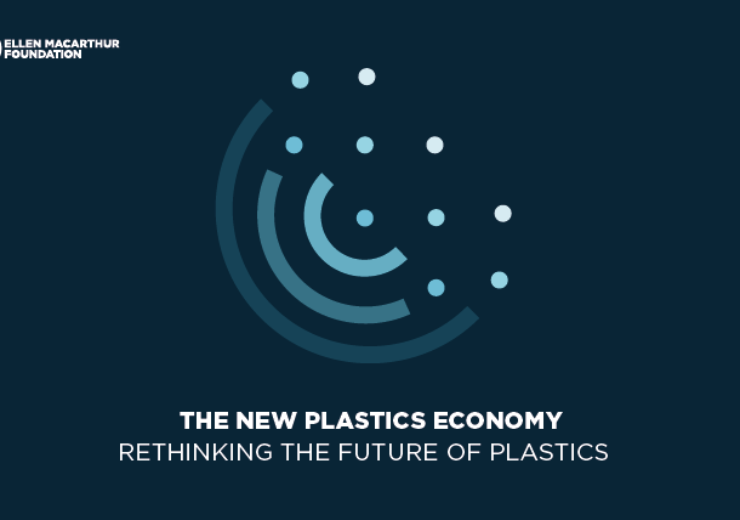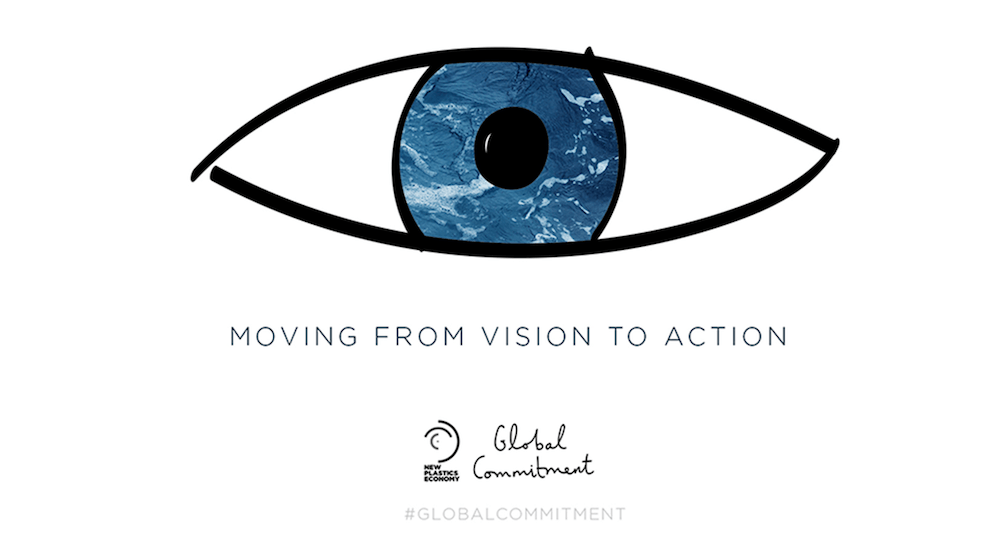In its first annual report, the New Plastics Economy has revealed a global commitment from nearly 200 companies to work towards the elimination of plastic waste

The New Plastics Economy global commitment currently has more than 400 signatories from business and government (Credit: Ellen MacArthur Foundation)
Publishing its first annual report, the New Plastics Economy has revealed a global commitment from governments and businesses towards the elimination of plastic waste.
Published jointly by charity the Ellen MacArthur Foundation and the UN Environment Programme, the report revealed how almost 200 organisations and administrations are changing plastic production after joining the New Plastics Economy global commitment in October 2018.
This included almost 70% of relevant company signatories in targeting the elimination of single-use straws, carrier bags and black plastic, with around 80% removing PVC from their packaging.
Governmental signatories, such as France, Rwanda and the UK have also introduced a range of policy measures including public procurement and extended producer responsibility schemes.
Ellen MacArthur Foundation New Plastics Economy lead Sander Defruyt said: “Around the world people are calling for businesses and governments to take action to stop plastic pollution.
“Leading businesses and governments stepped forward by signing the Global Commitment and we can now see promising early progress.
“This includes major commitments to reduce the use of virgin plastic, the introduction of re-use pilot projects and unprecedented demand for recycled plastic in packaging.
“But there is a long way to go and it is crucial those efforts are accelerated and scaled, and more businesses and governments take action to eliminate plastic pollution at the source.”
Business and government must go beyond the recycling and elimination of well-known problematic packaging
Although progress has been made, the organisation believes business and government must move beyond the recycling and elimination of only the most commonly identified problematic packaging.
The New Plastics Economy says this can be done through innovation, product and supply chain redesign and new re-use business models, which will allow companies to reduce plastic packaging alongside unlocking new economic opportunities.
It cites the fact that more than 40 companies signed up to the commitment are piloting re-use schemes, however less than 3% of plastic packaging in the signatory group is reusable, making it a significant yet unexplored opportunity.

Alongside this, analysis by the Ellen MacArthur Foundation shows replacing 20% of single-use plastic packaging with reusable alternatives offers an opportunity worth at least $10bn.
The New Plastics Economy says major investment, innovation and transformation programmes need to be developed, and is urging more businesses to join the global commitment to ensure an impact can be made at scale.
UN Environment Programme executive director Inger Andersen said: “Addressing plastic pollution requires a fundamental system shift, from a linear to a circular economy for plastic, which is at the core of the New Plastics Economy Global Commitment.
“The 2019 Progress Report shows how leading businesses and governments are taking actions in such a systemic way, thus demonstrating this makes business and political sense.
“The benefits represent a huge opportunity, and the concerted approach leaves no excuses not to act.
“We need all actors to work together in the plastic pollution crisis: UN Environment Programme calls on all relevant businesses and governments to join the Global Commitment to fight against plastic pollution as part of the implementation plan ‘Towards a pollution-free planet’.”
